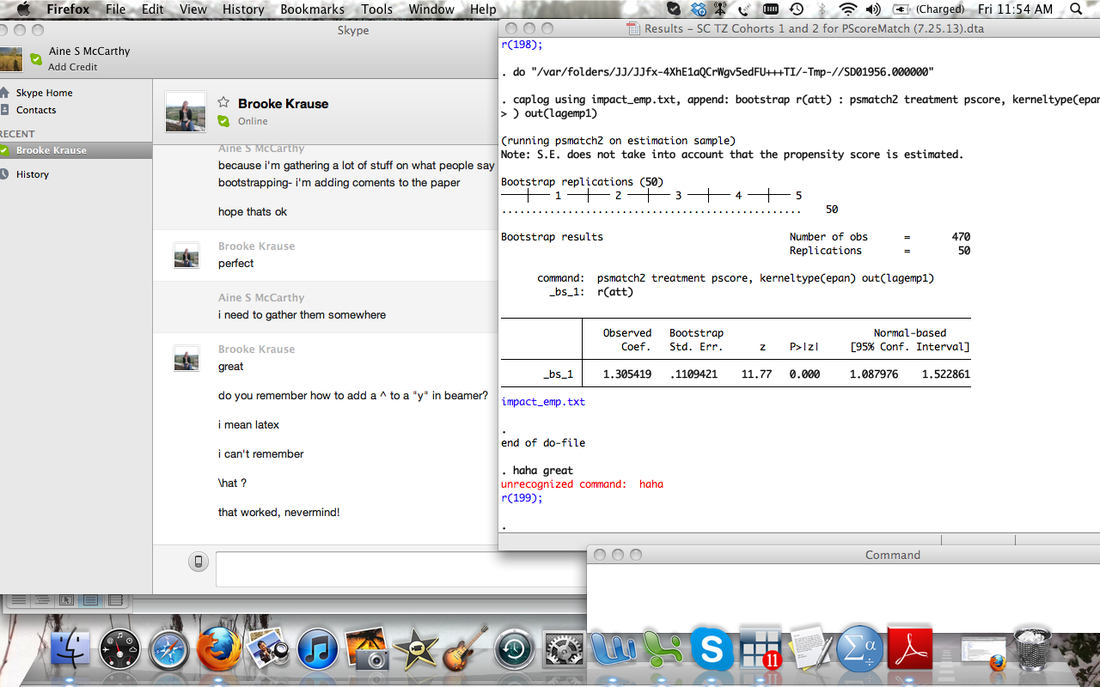Here's why:
1. Income. I have applied to at least 16 sources of funding (and counting). That's 16 proposals, 16 budgets (because each grant/fellowship wants their own budget) and <16 sources of income (can't win 'em all). I finally made a separate bank account for research monies, but that was a year into fieldwork. Why didn't anyone tell me to do that earlier?
2. Labor. I have employees in Tanzania and am occasionally surprised to find that I am the boss there. I'm thankful that I have actual professional work experience, decent leadership skills and excellent communication (for an academic, obviously).
3. Capital. That aforementioned research bank account that I finally opened? It includes reimbursed ATM fees (even internationally!), cheap international financial transfers and a personal banker that I can easily call up when I need another transfer to Tanzania (like, today). This type of fancy bank stuff does not come free to a graduate student with little capital, the account is co-signed by my dad.
4. I market my brand. I have a website. I put some actual thought into the design and modeled it after doing some market research. Thanks, friends. In addition to getting valuable feedback from peers, the main point of going to conferences and giving talks in other departments is to market myself and my research.
5. I make my own schedule. My daily dissertation progress, or lack there of, is a cost or benefit that only I bear. Sometimes distracting and lucrative consulting opportunities fall into my lap. Sometimes its 72 degrees outside. Sometimes I stay in Tanzania way longer than I'd like. Often times, I work on weekends. No one is responsible for managing my time and risk, except me.
6. Zero personal life boundary. Why do my university and personal emails go to the same inbox? Because it would be too difficult to differentiate which emails are related to work/school and which emails are personal. My coauthors are my friends, I meet with students at 9pm, beer is often consumed over reviewer comments, I keep a change of clothes in my cubicle, my home bookshelf is dominated by textbooks and I live part-time in a researcher flop house.**
7. It's an unpredictable crap shoot. Sometimes I wake up at 4am and I have four emails from my employee (i.e. field assistant) that say we miscalculated some costs and I need to send cash, stat. Thus the value of #2.
**Based on this description, it is safe to say that I am single and child-less. I hope that this boundary might get a little thicker when I a) am no longer a student and b) no longer single or child-less.

 RSS Feed
RSS Feed